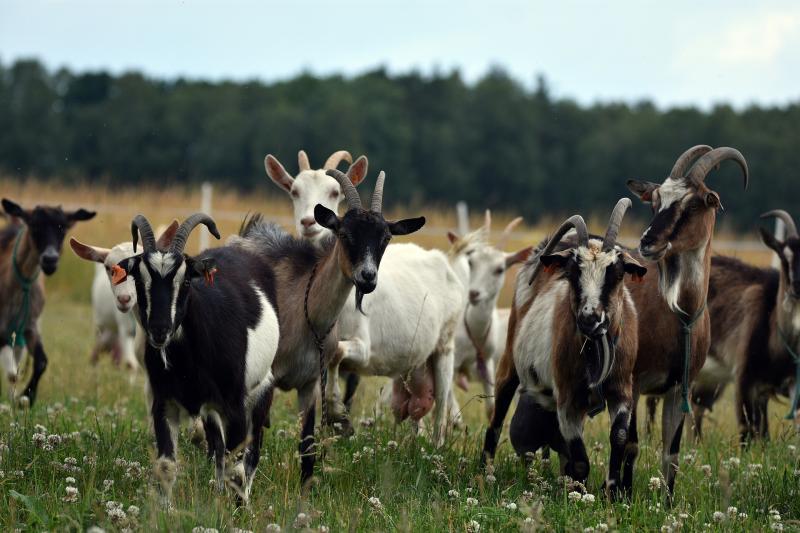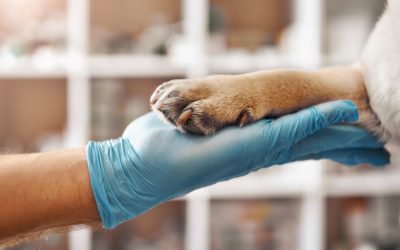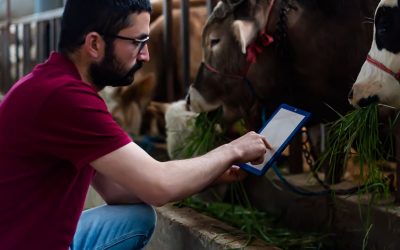Pirbright research develops new vaccines that could contribute to the global eradication of peste des petits ruminants virus
Posted: 10 December, 2021

Two new vaccine candidates that could differentiate between vaccinated and infected animals and contribute to the ongoing global eradication of peste des petits ruminants virus (PPRV) have been developed by researchers at The Pirbright Institute.
Following the successful eradication of rinderpest in 2011 (the only virus apart from smallpox to be eliminated), PPRV is the target of an international campaign which aims to eradicate the disease by 2030. PPRV, also known as goat plague, is highly contagious and infects small ruminants such as sheep and goats. This disease is a great burden in the developing world as it prevents the development of sustainable agriculture.
The disease is endemic in Asia, the Middle East and throughout Africa except few southern African countries, and recent outbreaks in North Africa, Turkey and Bulgaria highlight that there is a major risk of spread of PPRV to mainland Europe.
To control this disease and work towards the goal of eradication, a global effort is focused on developing a vaccine that can allow farmers to differentiate between those animals that have acquired immunity through vaccination, and those that have acquired immunity through natural infection. Until now this type of vaccine, known as a DIVA vaccine (differentiation between infected and vaccinated animals), did not exist, hindering the progress of the global eradication programme.
In the recent study published in Viruses, Pirbright scientists explored ways to create live attenuated DIVA vaccines using reverse genetics which provides a way to manipulate the RNA virus genome through DNA copies (cDNA). Using these techniques researchers have taken current vaccine strains of PPRV and replaced the variable part of the N gene (a gene that codes for nucleoproteins which play a role in the host’s immune response), with that from a related virus, dolphin morbillivirus (DMV). These modified strains of PPRV were then assessed for their growth characteristics in the laboratory and were found to behave similarly to the parent strains. They were also found to be safe and offer protection against disease for vaccinated goats similar to parent vaccine strains. To demonstrate that these vaccines were DIVA vaccines ELISAs were designed to successfully differentiate antibodies in the blood of infected and vaccinated animals.
Prof Satya Parida who led the research and was head of the Vaccine Differentiation Group while at Pirbright, now working at the Food and Agriculture Organisation of United Nations (FAO) as laboratory and vaccine specialist said “This is a key breakthrough in the global eradication of PPRV as a DIVA vaccine was the next piece of the puzzle. It allows for surveillance of animals to determine disease spread and monitor outbreaks, while also protecting animals and preventing virus shedding. We also showed that these novel vaccines can protect against any of the four lineages of PPRV. The next step is to test the efficacy of these DIVA vaccines on a larger number of animals to further establish the safety and potency before they are used in the field.”
This research was funded by the Biotechnology and Biological Sciences Research Council (BBSRC), part of UK Research and Innovation (UKRI).



